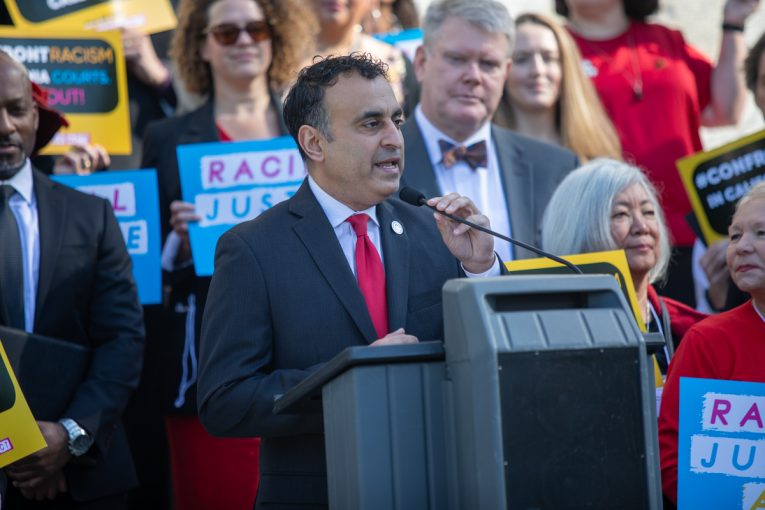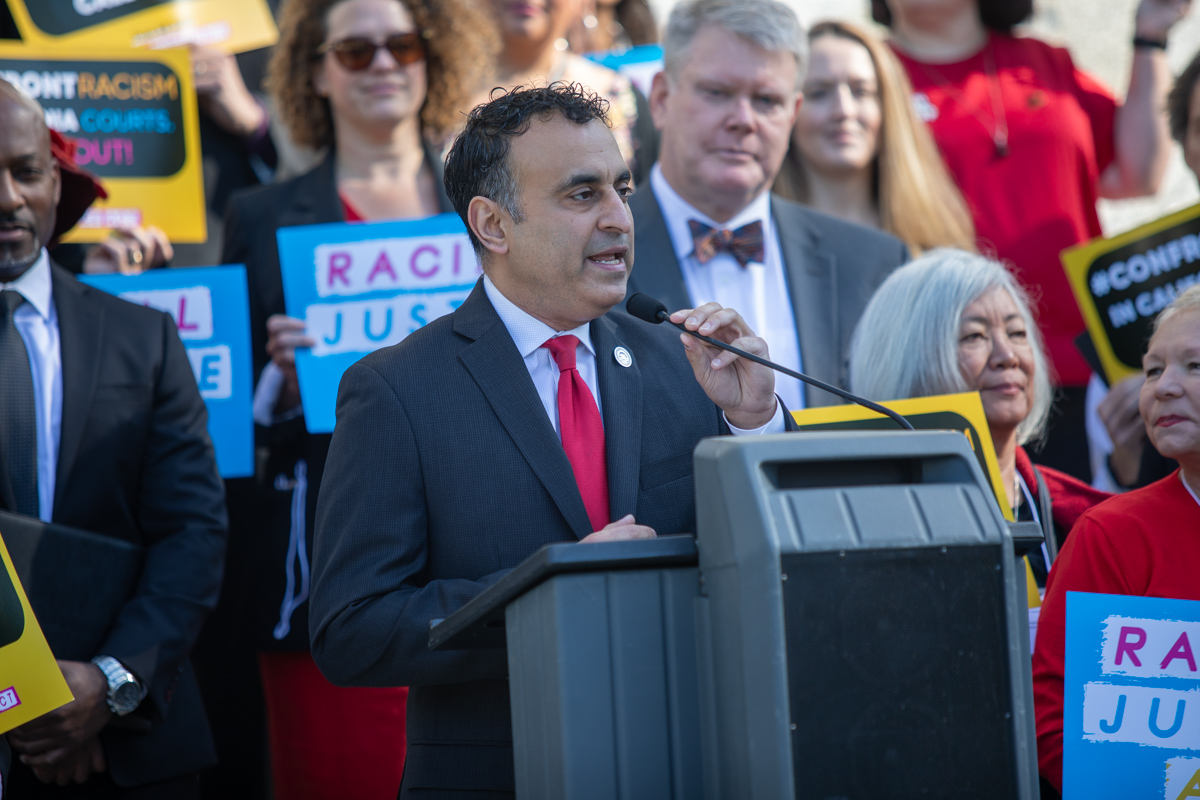

Bill Closes Loophole from Previous Legislation and Allows Those with Prior, Racially-Biased Convictions to Seek Justice
By David M. Greenwald
Executive Editor
Sacramento, CA – In 2020, the seminal Racial Justice Act was passed by the state legislature and signed by the Governor. While this was pathbreaking legislation which prohibits the state from seeking or obtaining a criminal conviction, or from imposing a sentence, based upon race, ethnicity, or national origin, it only impacted the criminal legal system moving forward.
AB 256, the Racial Justice Act for All fixes that.
In a phased-in approach, AB 256 would allow persons with convictions or judgments prior to January 1, 2021 to petition the court and seek relief if a racial bias violation was proven to be present in their case.
This week, it passed its final legislative hurdle and goes to the governor’s desk.
“When we passed the Racial Justice Act, we did so with a promise to not leave behind those with past criminal convictions and sentences that were tainted by  institutionalized and implicit racial bias in our courts. For those incarcerated because of unjust racial bias, AB 256 will extend the possible remedies to cure the harm and seek justice,” said Assemblymember Kalra.
institutionalized and implicit racial bias in our courts. For those incarcerated because of unjust racial bias, AB 256 will extend the possible remedies to cure the harm and seek justice,” said Assemblymember Kalra.
He added, “While the legislative process is never perfect, AB 256 is a significant step forward and could not be achieved without the tireless work of our coalition and the stories of those harmed by our criminal justice system.”
Prior to the Racial Justice Act, proving racial bias was nearly impossible because of the 30-year legal precedent set by McCleskey v Kemp.
That decision by the US Supreme Court, required California defendants in criminal cases to prove intentional discrimination when challenging racial bias in their case.
The landmark Racial Justice Act finally began to address this issue, but unfortunately the bill was narrowed to prospective cases, excluding those who had already been harmed by the racial bias and discrimination that permeates our criminal legal system.
If AB 256 is signed in law, those with past judgments, sentences and convictions prior to January 1, 2021, can petition the court for retroactive relief based on the following phased-in timeline:
- January 1, 2023 = individuals facing deportation or sentenced to death
- January 1, 2024 = individuals incarcerated for a felony
- January 1, 2025 = others with a felony conviction entered after 2015
- January 1, 2026 = all others with a felony conviction
“The Legislature’s passing of the Racial Justice Act for All affirms our state’s core values of embracing inclusivity and rejecting the racism that divides us,” said Derick Morgan, Senior Policy Associate with the Ella Baker Center for Human Rights.
He added, “Though bruised by amendments, the RJA for All expands our civil rights protections to imprisoned Californians, among others, so that everyone can challenge the systemic bias and racism our highest institutions have inherited. Today, California shows that we will leave no one behind on our path to healing,”
“AB 256 reaffirms that racism requires redress. No one should be on death row, deported, or in prison because of racism in our courts,” said Natasha Minsker, Policy Advisor for Smart Justice California.
“The League of Women Voters of California believes that racial discrimination is an evil that must be confronted in every sphere—in voting access, in housing, in education, in employment, and now, at long last, in California’s criminal legal system,” said Executive Director, Stephanie Doute. “Fairness demands that the protections of the Racial Justice Act extend to all Californians, and with the passage of this bill, they finally will.”
“AB 256 represents a critical step forward in the fight against racial bias and discrimination in our criminal legal system,” said Mica Doctoroff, Staff Attorney at the ACLU of Northern California. “We hope that AB 256 will help to provide justice to incarcerated Black, Brown, and Indigenous people who have borne the deep, harmful impacts of racism.”
“Black, Brown, and Indigenous communities have been plagued by racist policies and overrepresented in our prisons and courts for far too long. For those incarcerated due to racial bias, the Racial Justice Act for All provides a path forward to fight the systemic racism that has contaminated our legal system,” said Fatimeh Khan, California Healing Justice Program Co-Director of the American Friends Service Committee (AFSC).


Curious as to what would qualify regarding a “racially biased violation”, and whether or not this would automatically result in an overturn of a conviction. “Racially biased violations” already seem to imply illegality.
Also – whether or not this could include racially-biased statements made prior to a case. If I recall correctly, this was an issue in the O.J. Simpson trial.
For sure, it sounds like some attorneys are going to be scouring records of everything and everyone involved in some trials, to see if they can claim “racially biased violations”.
Sounds like the system itself could be on trial in nearly every case, instead of the defendant. Probably researching victims, as well.
But the only real change I’m seeing here is that the violation previously needed to be “intentional”, per the article above. It will be interesting to see how they’re going to prove “unintentional”, racially-biased violations.
Of course, it takes money to pay attorneys to dig deep (including for prior convictions), so I guess that the money will come from whatever groups support these type of efforts. (Which is probably limited.)
Unless somehow the government pays for these attorneys (e.g, from a “racially-biased violation committee” within a DA’s office which is committed to overturning prior convictions – based upon those claimed violations, alone).
In any case, I don’t see funding addressed, here.
My guess is that this isn’t going to make a whole lot of difference, in terms of vacating convictions based upon actual crimes that defendants have committed. And I don’t think that’s what “society” would support, either.
Indigent people of color filing for post-conviction relief is not going to be some sort of huge money pot for anyone.
That was pretty much my point.
Unlike those suing cities/police departments for police actions, who often “settle” for millions.
If there’s no money to be had, it’s difficult to find an interested attorney.
Unless it’s “included” within (for example) a progressive district attorney’s budget. In which case, you’d have a paid staff whose “job” it is to find such incidents.
Either way, taxpayers pay for it – and much of the money goes to the attorneys.